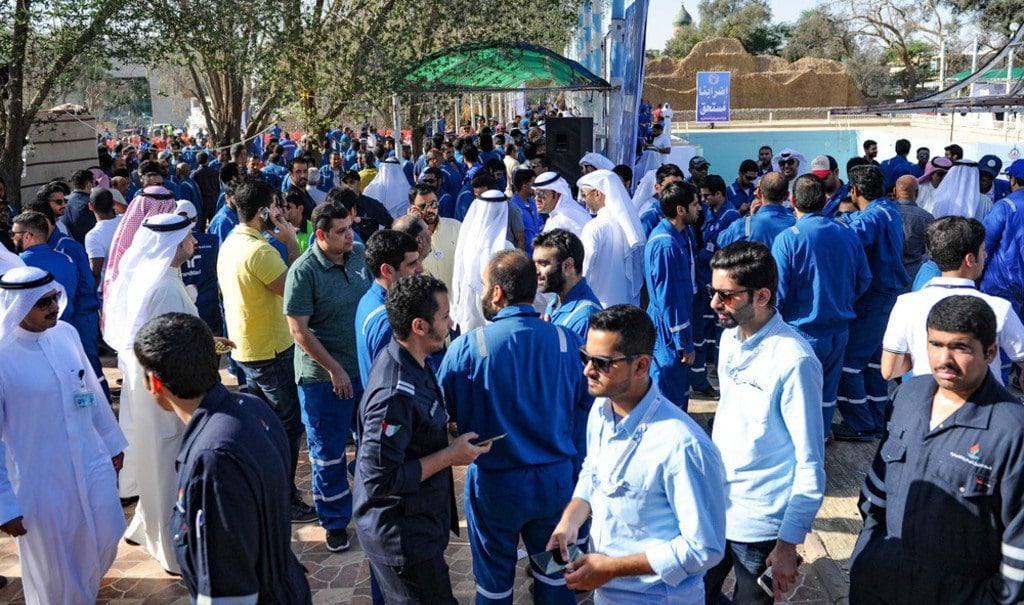
On 16 October 2016, the Emir of Kuwait, Sheikh Sabah al-Ahmad al-Sabah, issued a decree to dissolve the country’s parliament, paving the way for early elections. Almost immediately, the streets of Kuwait’s residential areas filled with electoral posters. The candidates had no time to lose; elections are scheduled for 26 November 2016.
Kuwait held its last parliamentary elections in 2013, the fourth since 2009. Once again, the 50-member legislative body has not completed its four-year term. The reason, according to the official KUNA state news agency, is ‘mounting security challenges as well as volatile regional developments’. Why and how a volatile security situation would improve by sending home both the legislative and executive bodies was left to the readers’ imagination.
Speculation about the real reason for the dissolution was rife. One rather innocent suggestion was that the next elections, scheduled for July 2017, would fall during Ramadan and voter turnout would be low. So the emir decided, as per article 107 of the constitution, to hold early elections. However, this scheduling problem could have been avoided by dissolving parliament a few weeks before the end of its term, not nine months.
International media attributed the latest political crisis to a row over the recent increase in fuel prices. With low oil prices squeezing Kuwait financially, the government implemented a number of unpopular austerity measures, including cutting fuel subsidies, without parliament’s approval – or so parliament claims.
Indeed, parliamentarians had been planning to grill government officials over the coming months about these austerity measures, prompting speculation that the decree’s timing was intended to thwart these proceedings. In addition, the current parliament is widely regarded as pro-government, the result of a boycott by the opposition angry over a new voting system during the last elections. Early elections are seen as the best way of maintaining the status quo.
Why? Because the most important opposition figure, Musallam al-Barrak, jailed following the Arab Spring, is still in prison. He is due to be released next spring, before the official election date. Holding elections early would prevent him from running for parliament or mobilizing sufficient support.
The same applies to all new candidates. Although the constitution stipulates that elections must be held within two months after parliament is dissolved, they are scheduled for less than six weeks after the dissolution. It will thus be hard for newcomers to run successful campaigns at such short notice.
One of these newcomers is Ghadeer Asiri, one of only a handful of women who have announced their candidacy. When asked whether running is doable in the time available, she replied, “I have to do it, even if it is in a short time, because that was their aim, to not let the new faces in.”
The opposition has also risen to the challenge, declaring an end to its four-year boycott and calling for active participation in the elections. So far, around 200 candidates have filed nomination papers. Candidates have until 28 October 2016 to register.
Against this backdrop, another factor may also play a role. It is not unthinkable – although never discussed openly – that the current emir, now 87 years old, will be replaced during the next parliamentary term.
According to the constitution, the crown prince, himself 79 years old, will succeed the emir and appoint a new crown prince. This appointment has to be approved by parliament, a unique feature in the region. If parliament does not approve the proposed candidate, the emir has to put forward three alternatives, one of which parliament must choose.
It is far from clear who the next crown prince will be. A fierce power struggle us underway within the royal family, and various members will use the forthcoming elections to gather parliamentary support for their preferred choice, resulting in some branches of the family supporting the opposition.
It remains to be seen how this will all play out. But one thing is sure: night after night, the front yards of the candidates’ houses will fill with men in white dishdashas (robes). Coffee will be served and cigarettes smoked as they discuss how their host can serve the country.
It is in these diwaniyas (reception areas) – and for the minority Shia population also the husseinyias (congregation halls) – that Kuwait’s election campaigns are run.
Whatever the results of the election, with political tensions on the rise, it is likely that the new parliament will be an unstable one, potentially leading to yet another dissolution and election. This may be the only way for the opposition to oust the old guard, which it deems corrupt. If it succeeds, accusations of electoral fraud will almost certainly follow.


